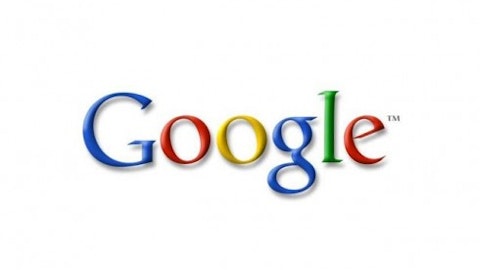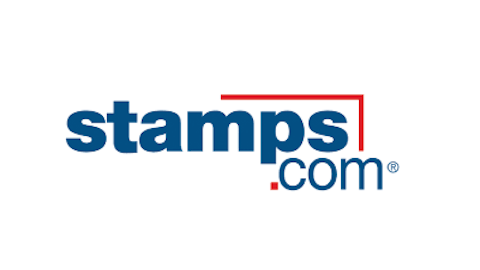
First let’s turn to the retail market and specifically online retail.
Non-store retail is rising
According to the recent Census report (opens pdf), retail sales slightly increased by 0.6% during June and by 3.7% during the first half of 2013 compared to 2012. The non-store retail sales sharply rose in June by 13.8% compared to June 2012 and by 11.2% in the first six months of the year. Online shopping sales (opens pdf) account for approximately 53% out of the non-store retail sales and 5.5% of total retail sales.
During the first quarter of 2013, online-shopping sales grew by 15.3%. This growth rate in online retail, which is higher than the total retail and non-store retail growth rates, is likely to keep augmenting its share in the retail market. Moreover, the online-retail-stores sales growth rate could serve as a good benchmark for this industry to compare the growth rate of other companies, such as Groupon Inc (NASDAQ:GRPN) and Amazon.com, Inc. (NASDAQ:AMZN).
Growth in revenue
During the first quarter of 2013, Amazon’s net revenue grew by almost 22% compared to the same quarter in 2012. This growth rate is higher than the average growth rate in online-retail sales in 2013 so far. Looking forward, Amazon’s revenue is expected to rise by 13% to 26% in the second quarter, which is still inline with the growth rate of online-retail-stores sales. This means Amazon.com, Inc. (NASDAQ:AMZN)’s sales are likely to keep growing at the same or higher pace as the industry’s average.
In the first six months of 2013, eBay Inc (NASDAQ:EBAY)’s net sales grew by a similar pace as online-retail sales: eBay’s net sales increased by 14.2% in the first half of 2013 compared to 2012. Looking forward, the company projects its revenue will be between $16 billion and $16.5 billion in 2013, which represents a 14.3% to 17.8% growth in sales. At the current pace, it coincides with online-retail-stores sales growth.
On the other hand, Groupon Inc (NASDAQ:GRPN)’s net revenue increased by only 7.5% in the first quarter of 2013. The reason for the low growth rate in revenue is due to the 18% decline in international revenue. On the other hand, North American net sales grew by 23%, which is higher than the online-retail market.
So Groupon Inc (NASDAQ:GRPN)’s revenue is growing at a slower pace compared to leading online companies such as Amazon and eBay Inc (NASDAQ:EBAY). Finally, Groupon’s revenue is expected (according to the company’s outlook) to rise by no more than 10% during the year, which could be less than the growth rate of total online-retail sales and other leading online companies. This isn’t a good selling point for owning Groupon.
Let’s turn to examine Groupon Inc (NASDAQ:GRPN)’s profitability.
Profitability
Groupon’s profit margin diminished in the first quarter of 2013: the operating profit margin fell from 7.1% in the first quarter of 2012 to 3.5% in the more recent period. Despite the recent decline in profitability, Groupon’s profit margin remains higher than Amazon’s profitability, which reached 1.1% in the first quarter of 2013. eBay is still leading the way in this aspect as its profit margin reached 19.3% in the second quarter of 2013, which is only slightly lower than the profit margin recorded in the second quarter a year earlier. In the near future, both eBay and Amazon could see a slow decline in their profitability due to currency risks, an ongoing slowdown in Europe, and stronger competition.
Based on the above, Groupon’s profitability is in the middle of the pack of other leading online companies. Looking forward, the company’s outlook for the second quarter of 2013 projects its profit margin will be between 3.5% and 6.4%, which is much lower than the profitability in the second quarter of 2012. Moreover, in 2013, the company’s operating profit may reach $100 million, which is less than last year’s profit. This means Groupon Inc (NASDAQ:GRPN)’s profitability isn’t likely to improve in the near future.
Valuation
Another factor that may influence investors is Groupon’s valuation compared to the industry and compared to other leading Internet-based companies. To that end, let’s analyze these companies’ enterprise value and their EV-to-EBIT ratios.
The table below presents the summary of all three companies’ EV-to-EBIT ratios.

This calculation considers these companies’ different financial structures. The yearly EBIT is based on the past four quarters (ending in the first quarter of 2013). As seen, Groupon’s EV-to-EBIT ratio is higher than the industry average. Amazon’s ratio is much higher than both Groupon’s and the industry average. eBay’s ratio is close to the industry average. This means that Groupon’s current value is high for its industry, which makes this company a less attractive investment from a valuation standpoint.
Takeaway
Based on the above, I remain doubtful as to the future course of Groupon. The company’s growth rate in revenue is high in the U.S but continues to decline in the international segment; Groupon Inc (NASDAQ:GRPN)’s profit margin isn’t high and its valuation seems high for the industry, which makes this company less of a bargain at this stage.
The article Is Groupon Worth Having in Your Portfolio? originally appeared on Fool.com and is written by Lior Cohen.
Lior Cohen has no position in any stocks mentioned. The Motley Fool recommends Amazon.com and eBay. The Motley Fool owns shares of Amazon.com and eBay. Lior is a member of The Motley Fool Blog Network — entries represent the personal opinion of the blogger and are not formally edited.
Copyright © 1995 – 2013 The Motley Fool, LLC. All rights reserved. The Motley Fool has a disclosure policy.





